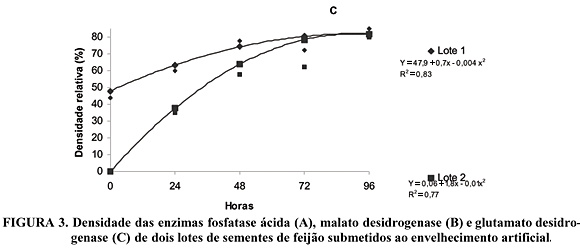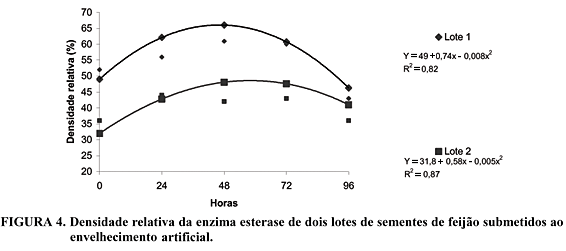The present work had the objective of evaluating the physiologic and biochemical alterations in bean seeds submitted to the artificial ageing. Two lots of bean seeds were used, cultivar Iapar 44, with different physiologic qualities, submitted to the artificial ageing (41ºC - 100% UR of the air), for zero, 24, 48, 72 and 96 hours. The physiologic analyses consisted of germination test, first germination count, electric conductivity, seedling and root length; the biochemical analyses were accomplished by the electrophoretical technique of enzymatic systems, being evaluated the acid phosphatase, malate and glutamate dehydrogenase and esterase. The obtained results concluded, a) lots with high germination presents accentuated difference in the answer to the ageing process, verified by the reduction in the selective capacity of the membranes of the seeds and growth and development of the bean seedlings; b) starting from 72 hours of artificial aging, there is reduction in the activity of the enzymes acid phosphatase and esterase; c) the activity of the enzymes acid phosphatase, malate and glutamate dehydrogenase and esterase are influenced by the ageing period and for the quality of the lots of seeds.
Phaseolus vulgaris; deterioration; acid phosphatase; malate dehydrogenase; glutamate dehydrogenase; esterase











